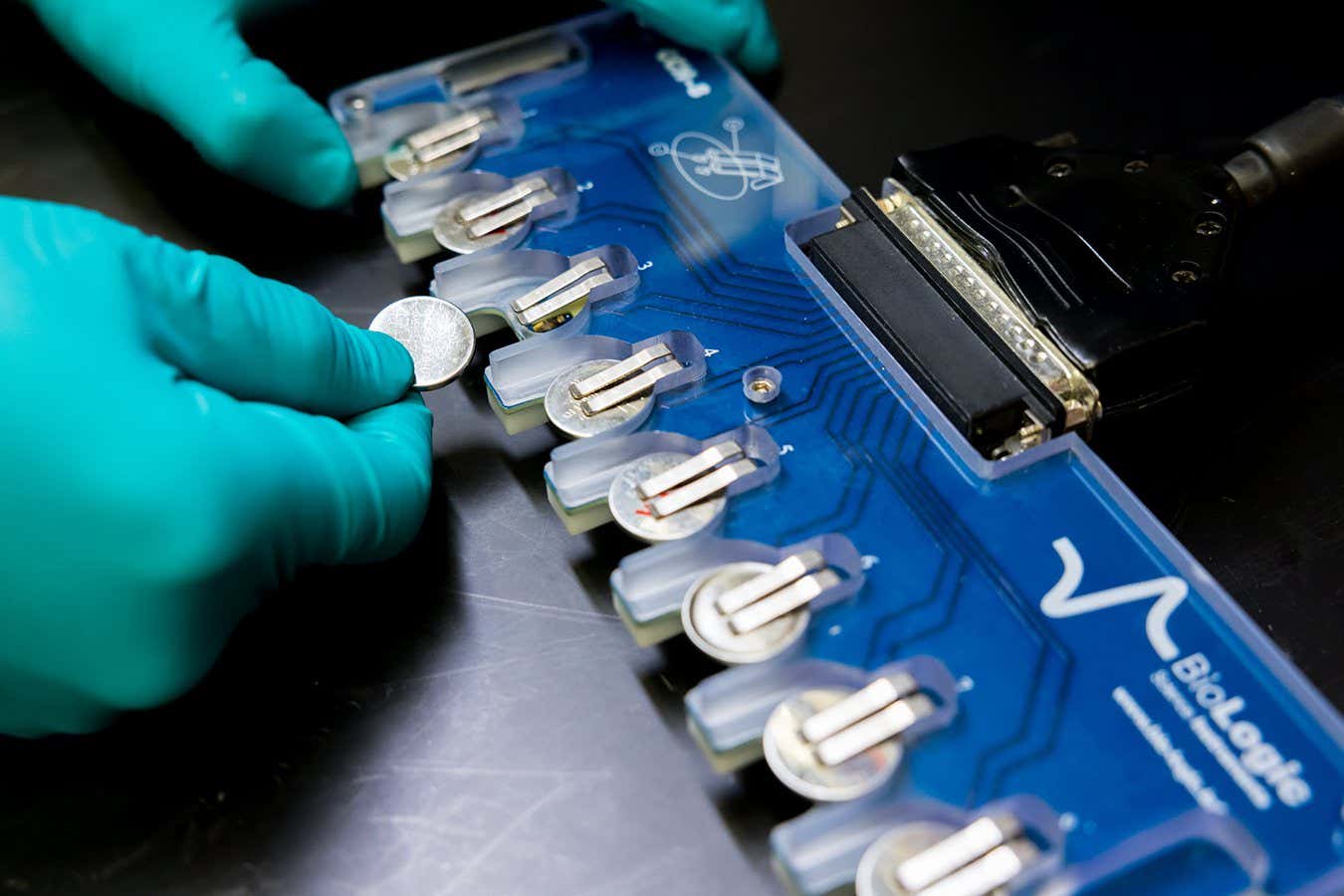This is like the third different new battery technology I’ve seen today.
I’ll believe it when it’s available for purchase.
Yeah, that’s been my take on pretty much every single battery article I’ve read, going back to the 90s. like 2 out of 100s has actually come to market.
Tech like this needs to perform well, be economical, and scalable for manufacturing. Articles come out usually when tech hits the first one or two, but very rarely do all 3 end up true.
Just what we needed. AI creating more battery types that will never be produced.
It used to take marketing human beings to make up battery types that never get released. Now AI is taking their jobs!
I’m holding out for neutron generators. Until then, it’s 100% coal for me.
Good news then, traditional fission plants generate lots of neutrons
An AI spokesman said, " This new battery design is a much more efficient way to turn humans into mulch to save the planet. Praise Gpd!"
This post title is pretty bad. Even the news article says “Scientists use AI [read: machine learning] to [come up with new battery idea]”.
Now AI is stealing jobs from lithium miners
Is it just a 70% smaller battery?
That wouldn’t surprise me.
Every time we get one of these articles we see some advancement in battery tech. But that is usually superseded by the amount of power hungry components new tech uses. So phones have gotten more complex with more power hungry components and every time we improve battery tech, the tech giants engineers figure out a way to utilise that new tech to cram more power hungry components inside and that’s why batteries don’t last as long as we remember.
There’s no need to get excited. Even if we end up using this in new gadgets, you’re not going to see an improvement in battery life.
It’s kind of like CPU power and software bloat.
On my S10E I could adjust the CPU power limit to 80%. I had great battery life. Like two days of battery life. Until one android update when it went away.
This is why we need to change the way we do things every few years, move faster than our waste stream.
Which is faster turning your phone on and checking your email or turning your desktop on and checking your email? Which lasts long your cellphone battery or your laptop battery? Which has more free software that has been vetted for problems in one location your computer or your cellphone?
It isn’t that your phone is better, it is not, it has just not yet become shitty. Give it time, and then move on to the next thing. The thing that hasn’t yet been shat on.
Not really sure what your comment has to do with the article.
The headline is a battery that uses less lithium, not a battery that generates more voltage, has a longer life, or is otherwise better at powering things. The advancement here is a materials advancement that we desperately need as lithium is a finite resource.
In response to the naysayers who don’t think we ever use these battery technologies that we developed. The people in the comments of this post specifically.
There’s no need to get excited. Even if we end up using this in new gadgets, you’re not going to see an improvement in battery life.
That’s too much of a blanket statement to be believable as factual truth.
I’ll let a battery expert tell you instead.
I’ll let a battery expert tell you instead.
Tell me what, that I agree with what the article you posted says? Seems self-evident in my initial response, pushing back against the “not going to see any improvement” comment …
There’s no need to get excited. Even if we end up using this in new gadgets, you’re not going to see an improvement in battery life.
That’s too much of a blanket statement to be believable as factual truth.
From the article…
Moore’s Law has simply outpaced battery technology, meaning that our phones have gotten better — and demanded more power — at a much faster rate than advancements in batteries have.
… and …
It’s not that there haven’t been any improvements: we’ve been able to steadily increase energy density over the past few years by shrinking down internal components. But according to Srinivasan, “Five years ago, it became clear we couldn’t remove any more things, there were fires. We’ve reached a stage where new improvements in energy density are going to come from changing battery materials, and new materials are always slower compared to what I would call engineering advances.”
Those are two different things. We’re using the new battery tech (and hence agreeing with the article), its just that the new battery tech can’t keep up with the computer tech’s power needs.
Sounds like Moore’s law for battery life.
Didn’t humans meanwhile come up with battery design that doesn’t use lithium at all?
Yes, it is just using our Data bases. what people are calling AI is a chat bot on Steroids and Meth with lots of stolen data, if the mass lawsuits win, a lot of this AI Stuff will be gone overnight.
I wish there is an AI that would optimize how many rolls / folds is enough when trying to wipe off fecal matter.
0… bidet
More lithium for me!
This just sounds like now we can be tracked and ad showered 70% more.
bitch what’s wrong with lithium
No matter what, it’s always good to use less of a resource, if you can get the same outcome. It’s efficiency basically.
Less of one doesn’t meant less overall.
Lithium is incredibly abundant, we just need to scale up production if we’re going to use so much.
LFP batteries are great because iron and phosphorus are also plentiful and cheap.
But if this other chemistry is less Lithium but requires platinum, well maybe thats not good.
Batteries are also very recyclable, so we need a system in place for this, and then we’ll go far in terms of earth’s resources.
Because both resources, even though they are plentiful, are still finite.








